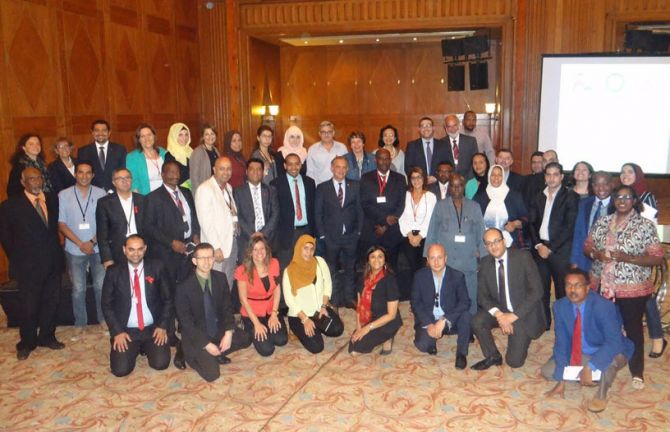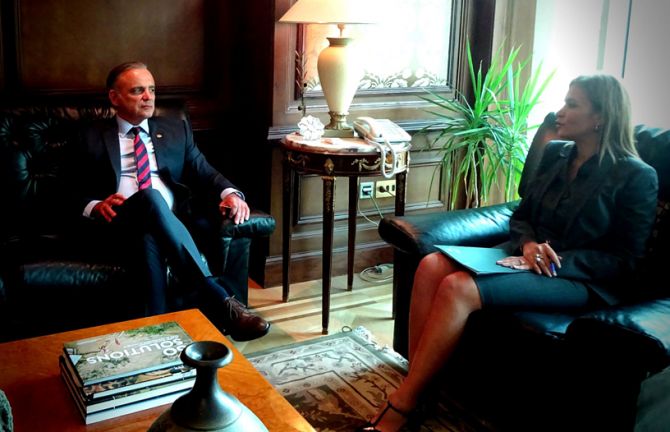


Update
Resilient HIV responses needed in countries affected by humanitarian crises
07 October 2015
07 October 2015 07 October 2015Countries affected by humanitarian crises in the Middle East and North Africa are facing enormous challenges to respond effectively to the AIDS epidemic. Interruption of HIV services, limited prioritization of HIV in humanitarian responses and limited capacity of national programmes are just some of the challenges faced by countries.
UNAIDS, in collaboration with the Regional/Arab Network against AIDS (RANAA) and the General Secretariat of the League of Arab States, organized a two-day consultation in Cairo, Egypt, on 30 September and 1 October 2015 to discuss ways to strengthen national capacities for a resilient HIV response and to reach the goals of the Arab AIDS Strategy (2014–2020), which were endorsed by the Council of Arab Ministers of Health in March 2014.
Participants outlined linkages, entry points and priority actions for HIV integration in humanitarian response as well as the technical support needs for countries in emergency situations. The protection of people affected by humanitarian emergencies, including refugees, asylum seekers and internally displaced people, was identified as a key priority in the Middle East and North Africa.
Speaking at the consultation, UNAIDS Deputy Executive Director Luiz Loures emphasized that fostering partnerships with clear roles and responsibilities is key to addressing the needs of countries. He also noted that while conflict is a global reality, it is particularly affecting the Middle East and North Africa. He stressed the need to reach out to the people most vulnerable and excluded, to devise mechanisms to ensure that no one is left behind and to take into consideration sexual violence in conflicts.
The consultation is the first to contribute to the UNAIDS Programme Coordinating Board’s technical dialogue on HIV in emergency contexts.
In a meeting with civil society and key populations from conflict affected countries of the region, Mr Loures urged them to focus, look for data and be innovative in the response and never compromise on their critical role in putting people first.
Quotes
“The notion of working for the most excluded is a fundamental reality for all partners and not an option if we want to see the end of the AIDS epidemic as a public health threat.”
“We commit to coordinate, collaborate and support a serious development process to address the challenges of HIV, which threatens the advancement of the development agenda of this region.”
“I am looking forward to forging a stronger partnership with the UN, including UNAIDS, with the objective of improving the lives of Egyptian people and enhancing their overall wellbeing, and with a special focus on youth and women issues, reaching under served governorates, and catering to the needs of the most vulnerable segments of society.”
“We want to consider in our interventions prioritization, integration and mobilization of resources in order to make the difference we wish to see, as the situation for refugees is expected to worsen.”
“When we say fragile communities, we do not refer to people but to the environment they live in and when we say humanitarian crises we do not stigmatize, since we are facing these crises together and the only way to move forward is to join hands and collaborate.”
Region/country
Related
 Government ensures continuity of treatment in Malawi
Government ensures continuity of treatment in Malawi

10 February 2025


